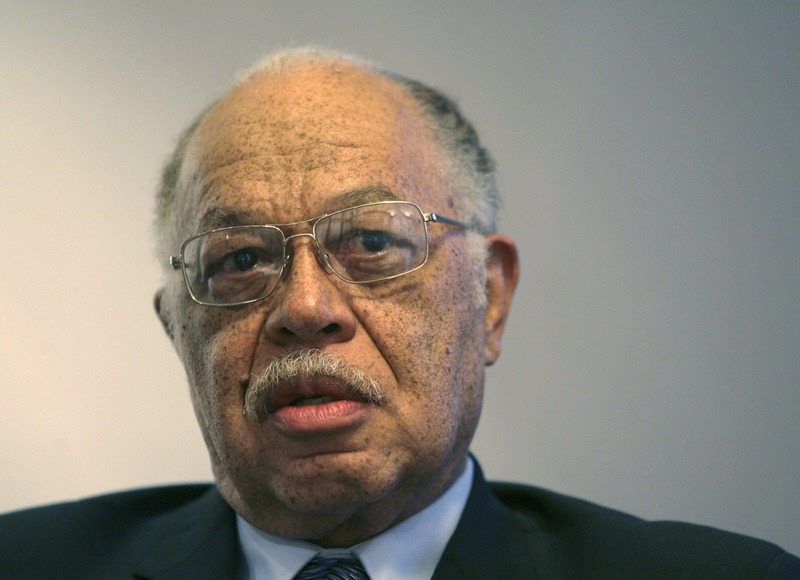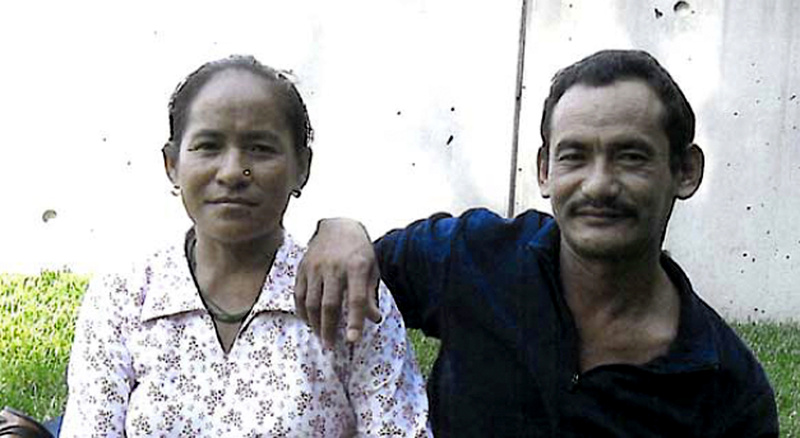PHILADELPHIA – An abortion doctor was convicted Monday of first-degree murder and could face execution in in the deaths of three babies who were delivered alive and then killed with scissors at his grimy, “house of horrors” clinic.
In a case that became a grisly flashpoint in the nation’s abortion debate, Dr. Kermit Gosnell, 72, was also found guilty of involuntary manslaughter in the overdose death of an abortion patient. He was cleared in the death of a fourth baby, who prosecutors say let out a whimper before the doctor cut the spinal cord.
Gosnell, who portrayed himself as an advocate for poor and desperate women in an impoverished West Philadelphia neighborhood, appeared hopeful before the verdict was read and calm afterward.
The jury reached its verdict on its 10th day of deliberations. It will return May 21 to hear evidence on whether Gosnell should get the death penalty.
Gosnell attorney Jack McMahon called it a “very difficult case” to defend and said there was “a little bit of feeling on the defense part of what salmon must feel swimming upstream.”
“There’s a lot of emotion. You have the baby factor, which is a big problem. The media has been overwhelmingly against him,” he said. But noting that Gosnell was cleared on some of the charges, McMahon said the jurors “obviously took their job seriously.”
Prosecutors looked elated, but District Attorney Seth Williams declined comment until after the sentencing phase, citing a gag order.
Former clinic employees testified that Gosnell routinely performed illegal abortions past Pennsylvania’s 24-week limit, that he delivered babies who were still moving, whimpering or breathing, and that he and his assistants dispatched the newborns by “snipping” their spines, as he referred to it.
“Are you human?” prosecutor Ed Cameron snarled during closing arguments. “To med these women up and stick knives in the backs of babies?”
Gosnell was also convicted of infanticide, racketeering and more than 200 counts of violating Pennsylvania’s abortion laws by performing third-term abortions or failing to counsel women 24 hours in advance. The courtroom was locked for more than 30 minutes as the verdicts were read and the jurors polled one by one.
His co-defendant, former clinic employee Eileen O’Neill, was convicted of taking part in a corrupt organization and illegally billing for her services as if she were a licensed doctor.
The jury foreman let out big sigh before the verdicts were read and looked stressed. Another juror was seen crying.
The gruesome details came out more than two years ago during an investigation of prescription drug trafficking at Gosnell’s clinic. Investigators said it was a foul-smelling “house of horrors” with bags and bottles of fetuses, including jars of severed feet, along with bloodstained furniture, dirty medical instruments, and cats roaming the premises.
Pennsylvania authorities had failed to conduct routine inspections of all its abortion clinics for 15 years by the time Gosnell’s facility was raided. In the scandal’s aftermath, two top state health officials were fired, and Pennsylvania imposed tougher rules for clinics.
Four former clinic employees pleaded guilty to murder and four more to other charges. They include Gosnell’s wife, Pearl, a cosmetologist who helped perform abortions.
Both sides in the highly charged abortion debate endorsed the verdict.
“This has helped more people realize what abortion is really about,” said David O’Steen, executive director of the National Right to Life Committee. He said he hopes the case results in more states passing bills that prohibit abortion “once the unborn child can feel pain.”
Supporters of legalized abortion said the case was a preview of what poor, desperate young women could face if abortion is driven underground with more restrictive laws.
“Kermit Gosnell has been found guilty and will get what he deserves. Now, let’s make sure these women are vindicated by delivering what all women deserve: access to the full range of health services including safe, high-quality and legal abortion care,” said Ilyse G. Hogue, president of NARAL Pro-Choice America.
Midway through the six-week trial, anti-abortion activists accused the mainstream media of deliberately ignoring the case. Major news organizations denied it, though a number promptly sent reporters to cover the trial. About 30 reporters were in court for the verdict.
After prosecutors rested their five-week case, Common Pleas Judge Jeffrey Minehart threw out for lack of evidence three of seven murder counts involving aborted fetuses. That left the jury to weigh charges involving fetuses identified as Baby A, Baby C, Baby D and Baby E.
Prosecution experts said one was nearly 30 weeks along when the abortion took place, and was so big that Gosnell allegedly joked the baby could “walk to the bus.” A second baby was said to be alive for about 20 minutes before a clinic worker snipped the neck. A third was born in a toilet and was moving before another clinic employee severed the spinal cord, according to testimony.
Baby E let out a whimper before Gosnell cut the neck, prosecutors alleged. Gosnell was acquitted in that baby’s death, the only one of the four in which no one testified to seeing the baby killed.
Gosnell’s attorney argued that none of the fetuses was born alive and that any movements were posthumous twitching or spasms.
Gosnell did not testify, and his lawyer called no witnesses in his defense. But McMahon branded prosecutors “elitist” and “racist” for pursuing his client, who is black and whose patients were mostly poor minorities.
“I wanted to be an effective, positive force in the minority community,” Gosnell told The Philadelphia Daily News in a 2010 interview. “I believe in the long term I will be vindicated.”
The defense also contended that the 2009 death of 41-year-old Karnamaya Mongar of Woodbridge, Va., a Bhutanese immigrant who had been given repeated doses of Demerol and other powerful drugs to sedate her and induce labor, was caused by unforeseen complications and did not amount to murder, as prosecutors charged.
Bernard Smalley, a lawyer for the woman’s family, said he now hopes to bring “some sense of justice and quiet to this family that’s been through so much.”
Gosnell still faces federal drug charges. Authorities said that he ranked third in the state for OxyContin prescriptions and that he left blank prescription pads at his office and let staff members make them out to cash-paying patients.
He performed thousands of abortions over a 30-year career, some on patients as young as 13. Authorities said the medical practice alone netted him about $1.8 million a year, much of it in cash. Authorities found $250,000 hidden in a bedroom when they searched his house. Gosnell also owned a beach home and several rental properties.
“He created an assembly line with no regard for these women whatsoever,” Cameron said. “And he made money doing that.”
Send questions/comments to the editors.



